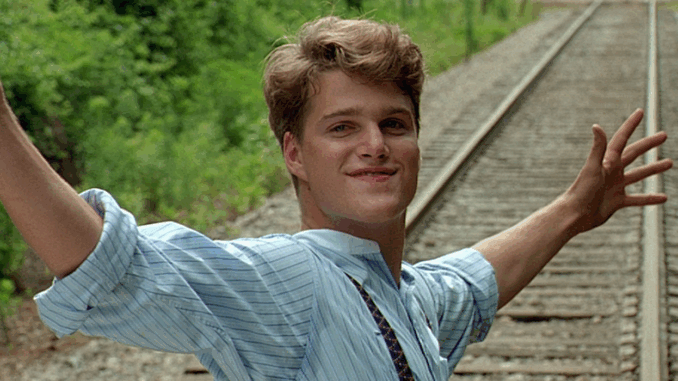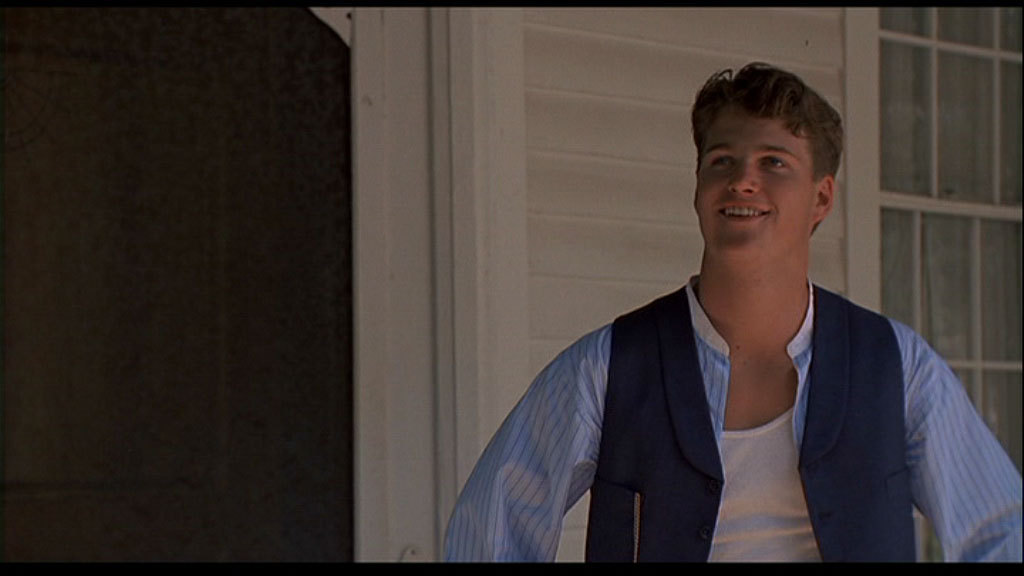
The Golden Son of Whistle Stop
In the tapestry of Fried Green Tomatoes, some characters leave their mark through longevity and transformation—others, like Buddy Threadgoode, through brief but searing brilliance. Though his time in the narrative is tragically short, Buddy’s influence resonates throughout the film and novel. He is not just a beloved brother or charming Southern gentleman; Buddy is the spark that lights a lifetime of resilience and rebellion in his sister Idgie. His story, marked by joy, tragedy, and deep emotional bonds, serves as a linchpin for many of the themes that define the heart of the film.
Charisma and Compassion: The Soul of a Small Town
Buddy Threadgoode is introduced to viewers through memories and photographs, depicted as a vivacious, handsome young man who lights up every room—or town fair—he walks into. He’s flirtatious, yes, but never arrogant. He has an infectious laugh, an easy charm, and an uncommon sense of decency. Most notably, Buddy exhibits a progressive and compassionate worldview, especially for a man in 1920s Alabama.
Unlike many of his peers, Buddy treats women, children, and African Americans with kindness and respect. He’s quick to joke with Sipsey and Big George, the Black employees who work for his family, not as subordinates but as trusted members of their community. He’s gentle with his younger siblings, particularly the wild-hearted Idgie, whom he encourages and protects. In a rigid, hierarchical society, Buddy’s open-heartedness makes him a beacon of hope.
A Devastating Loss That Alters Destiny
Tragedy strikes when Buddy is killed in a freak accident—his foot caught in a railroad track just as a train barrels through. The moment is depicted with heartbreaking suddenness in both the novel and the film. One minute, Buddy is tossing a hat and smiling at his new love interest; the next, he is gone. His death is not only a personal loss to the Threadgoode family but a symbolic loss of innocence for Whistle Stop as a whole.
For Idgie, Buddy’s death is cataclysmic. She retreats from society entirely, turning inward and rejecting traditional femininity and religious norms. The warm, mischievous little girl who adored her older brother becomes the fiercely independent and emotionally armored woman we come to know throughout the rest of the story.
Brother, Protector, Idol

Buddy’s relationship with Idgie is central to understanding the woman she becomes. From the start, he sees and accepts her exactly as she is—rowdy, free-spirited, unconventional. He doesn’t try to “correct” her or mold her into the image of a proper Southern lady. Instead, he laughs with her, encourages her sense of adventure, and shields her from judgment. It’s Buddy who makes her feel seen and worthy, laying the emotional groundwork for the powerful connection she later forms with Ruth Jamison.
The depth of their bond makes his death a psychological earthquake. In losing Buddy, Idgie doesn’t just lose a brother; she loses the only person who made her feel completely safe and loved within the confines of traditional Southern society.
A Quiet Influence That Echoes Through Generations
Though he dies early, Buddy’s influence lingers across generations. His memory shapes how the Threadgoode family functions, and his image remains embedded in the walls of their home and café. In one telling moment, Idgie recounts a story about Buddy to Ruth as if conjuring him up from the ether. Her words are wistful but present—Buddy has never truly left her. He remains the standard by which she judges decency, love, and courage.
Moreover, Buddy’s spirit lives on in namesake Buddy Jr.—the son of Ruth and biological child of the villainous Frank Bennett. When Idgie and Sipsey raise Buddy Jr., they infuse him with the love and acceptance that Buddy Sr. once gave them. The name is no accident; it’s a deliberate act of resurrection, a way to keep Buddy’s memory alive through love, nurture, and justice.
A Symbol of What the South Could Be
In a story deeply entangled with issues of race, gender, and class, Buddy represents a rare hope for a more inclusive and compassionate South. He is the “what if” that haunts the film—the kind of man who might have helped lead Whistle Stop into a more progressive future had he lived. His moral compass is clear, his kindness universal. In contrast to the cruelty of Frank Bennett or the blind indifference of so many townsfolk, Buddy stands apart as a young man who saw people as people.
This is perhaps why his death is so traumatic. It isn’t just personal; it’s political. The loss of Buddy Threadgoode is the loss of possibility—the dream of a South that could embrace change without violence, dignity without dominance.
Death, Memory, and Storytelling
One of the overarching themes in Fried Green Tomatoes is the power of storytelling to preserve, heal, and empower. Buddy’s story, as told and retold by Idgie, becomes a form of preservation. She keeps him alive by talking about him, showing his picture, naming a child after him. In this way, Buddy never truly dies. His impact remains embedded in the oral and emotional history of Whistle Stop.
For the viewer or reader, Buddy also represents the bittersweet truth that not all heroes live to fulfill their promise. Some, like Buddy, leave their greatest legacy in how they inspire others. His kindness becomes a seed that flowers in Idgie, in Ruth, in Buddy Jr., and even in Evelyn Couch—who learns to stand up for herself after hearing about the bravery of people like Buddy.
Conclusion: The Eternal Flame
In Fried Green Tomatoes, Buddy Threadgoode is more than a character—he’s an idea, a legacy, and a ghost who haunts the edges of memory. His brief presence carries immense emotional weight because it encapsulates everything the film holds dear: love, courage, loss, and the fight for justice. Through Idgie’s wildness, Ruth’s strength, Sipsey’s protection, and Buddy Jr.’s smile, we see Buddy’s spirit live on.
He may have only appeared in a few scenes, but he is a thread that runs through the entire narrative. Without Buddy, there would be no Whistle Stop Café as we know it, no fierce Idgie, no redemption for Ruth. His life—though fleeting—forever shaped the people who survived him. And in doing so, Buddy Threadgoode became eternal.
